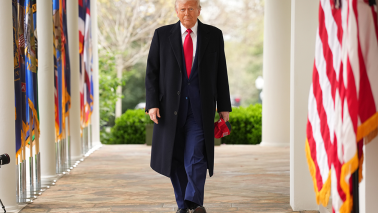Even when she slips into a room half an hour late, The Lady can still inspire a standing ovation. ‘Can I welcome Baroness Thatcher who has just joined us,’ said Lord Lamont halfway through the Keith Joseph memorial lecture last Tuesday. He had just started explaining that Sir Keith would have accepted today’s Conservative slogan of ‘stability before tax cuts’, because he agreed with the principle of balanced budgets and ‘sound money’. On that basis, Sir Keith, the intellectual architect of Thatcherism, would have been a fan of George Osborne.
It’s a welcome endorsement for a shadow chancellor who has been trying to make the same argument for months. ‘I am a traditional Conservative,’ he says when he feels he is about to be accused of being a Labour-appeasing, gimmick-peddling sell-out. ‘And traditional Conservatives used to win elections.’ He can trace his new policies, even green taxes, to old Tories. And he is a shameless throwback to the 1980s, he can now argue, in the sense that the polls once again (more than 14 years after Black Wednesday) show the Tories more trusted than Labour over the economy.
For a man who started out 22 points behind Mr Brown in the economic competence ratings, it seems little short of a miracle. Mr Osborne’s aides believe that three quarters of this is down to the Chancellor himself, and to the growing dismay of a nation whose disposable income is not keeping pace with re-awoken inflation. Still haunted by the trauma of sterling’s exit from the ERM, the Tories are being careful to promise nothing too radical. Mr Osborne’s strategy has been to restore the credibility he believes was incinerated on that day.
As if to atone for this, Mr Osborne has so far forsworn sweeping upfront promises of tax cuts.








Comments
Join the debate for just £1 a month
Be part of the conversation with other Spectator readers by getting your first three months for £3.
UNLOCK ACCESS Just £1 a monthAlready a subscriber? Log in